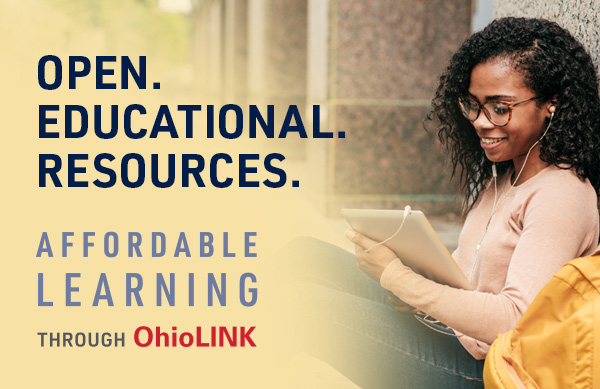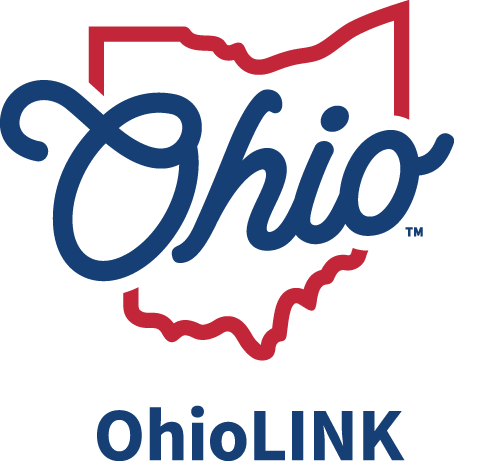As part of the OhioLINK Membership Summit, OhioLINK hosted the “DEI in LIS” webinar panel, moderated by Otterbein University’s Library Director Tiffany Lipstreu. The webinar panelists discussed diversity, equity, and inclusion (DEI) efforts within Ohio’s library and information science (LIS) sector and educated attendees about OhioLINK’s Luminaries Program.
Amy Pawlowski, executive director of OhioLINK, kicked off the talk by discussing OhioLINK’s DEI initiative, which aims to identify and encourage diverse candidates for Ohio’s libraries and library-related industries, while also supporting efforts towards greater diversity, equity, and inclusion at the library level. A major component of this initiative is the newly dubbed OhioLINK Luminaries Program, which gives undergraduate college students from under-represented populations an opportunity to gain paid, rotational work experiences in select OhioLINK libraries alongside a dedicated mentor. “As librarians, we are trying to light career pathways in data and information,” Pawlowski said.
This annual program not only introduces the students to libraries as a potential career path, it also helps students acquire marketable skills that can extend to a variety of professional disciplines—both inside and outside of libraries. The participating institutions have been selected for the academic year 2021-2022 and are recruiting for their students.
The Luminaries Program has continued to evolve since it was established in 2017. Jerome Conley, dean and university librarian at Miami University, was a key player in working with OhioLINK to develop the program into what it is today, with a particular focus on providing support for participants through information sharing and networking.
“As the program continues, the cohort of students, mentors, and administrators will grow and be able to support each other and our institutions as we better position ourselves for making sustainable change,” Conley said.
The University of Dayton was part of the Luminaries Program pilot launch. Ione Damasco, associate dean for inclusive excellence, engagement, and operations at the university, detailed her experience mentoring a sophomore student for three semesters and how invaluable the experience was for her library and the student.
“She worked in our university archives, with research and instruction, and with different cross-departmental teams in the library to see what it was like for people who are working in different functional areas, like marketing and outreach or diversity and inclusion,” Damasco said. “You have as much to learn in your library from your Luminaries student as they do from you.”
Damasco emphasized the importance of creating an environment that is welcoming and ready to host a student. By doing so, institutions can learn from the student’s unique experiences and create a space that is safe for the mentor and mentee to discuss complicated or sensitive topics.
Webinars and learning activities are being planned to provide each Luminaries Program cohort—students, mentors, and administrators—insights into working in and creating change in inclusive libraries.
To better understand the state of DEI efforts in Ohio libraries, the Academic Library Association of Ohio (ALAO), led by President Mandi Goodsett, conducted a survey in the spring. The data from this survey will help ALAO members improve DEI efforts in their libraries and provide Ohio libraries a better idea of what needs to be done to enact sustainable change.
“The biggest challenges that our respondents identified included a lack of financial support, lack of designated DEI staff or faculty positions, the inability to hire new DEI candidates, a sense that things are fine or a lack of urgency among library staff and patrons, and also inherently inequitable structures build into academia,” Goodsett said. “Participants in the survey expressed a desire for libraries to move beyond just words of commitment and actually take some action … we’re hoping the end result of the survey is a set of workshops or tools, maybe in collaboration with OhioLINK, that allow our members to take practical action and get started right away and be empowered.”
Shannon Simpson, scholarly instruction librarian at Kenyon College, discussed her library’s diversity team, which includes librarians and IT staff members. She seconded Goodsett’s sentiment that DEI initiatives need to be backed by actional items that foster change.
“This year we’re going to act as a consulting body to each of the various departments in the library as they work to infuse diversity into all of their goals,” Simpson said. “We are going to help them write their goals to include diversity and show how to make them actionable.”
The July 14 webinar was part of the OhioLINK Summit, an annual meeting that connects staff from OhioLINK member institutions and provides the opportunity for participants to share ideas, brainstorm future initiatives and reflect on the past year’s accomplishments. Due to COVID-19, the OhioLINK Summit has adapted to an online format. Nine webinars will be held between May and August.
If you are interested in upcoming OhioLINK Summit webinars, please visit OhioLINK’s member extranet for the full schedule (OhioLINK Ostaff log-in required).
About OhioLINK: Connecting libraries, learning and discovery
Established in 1992, the Ohio Library and Information Network (OhioLINK) is Ohio’s statewide academic library consortium, serving 88 institutions plus the State Library of Ohio. Delivering both IT infrastructure and content negotiation, OhioLINK provides students, researchers, faculty, and staff with access to valuable digital research collections at a fraction of the cost if those collections were purchased by individual institutions. OhioLINK also connects library services, print and digital collections among its member institutions and manages collaborative services aimed at reducing students’ cost of higher education in Ohio, including eTutoring and Affordable Learning. A member of the Ohio Technology Consortium of the Ohio Department of Higher Education, OhioLINK creates a competitive advantage for its member institutions and supports student and researcher success across Ohio. Learn more at ohiolink.edu.

